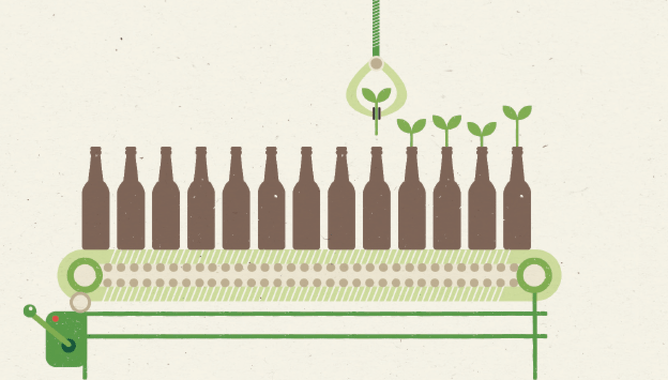Making beer is a pretty energy intensive process, not only for those brewers sweating over a hot mash-tun but also in the energy required to produce that fine amber liquid we so enjoy. This is why more and more breweries are incorporating sustainable elements into their operations.
Sustainability comes in many forms: social, environmental, economic and has come to be expected from consumers who are looking for businesses to show some real social and environmental responsibility. An effective way to improve in this area is through annual stocktakes and sustainability reports. For many businesses this used to be a box ticking exercise but now there are some real and effective initiatives being undertaken.
From CO2 emission reduction and decreased water use, through to moderate consumption initiatives and internal health and safety, many breweries in New Zealand are lifting their game.
Take DB, for example, who last year reported 104 tonnes of glass diverted from landfill to roading and construction projects through their DB Export sand initiative, or their reduction of CO2 emissions by 47% since 2008.
The Fermentist Brewery in Christchurch have also taken it to another level with a range of initiatives to reduce the carbon footprint including: solar panels for a proportion of electricity usage and hot water heating, composting, waste minimisation, rain water harvesting and recycling to reduce and limit waste going to landfill.
We have seen the public groundswell for plastic bags out of supermarkets and straws out of bars, who knows what consumers will turn their gaze to next? If it’s something your business relies on now it could be hard to phase out quickly.
I would urge brewers and hospitality businesses out there to look at their own processes with an operational lens which incorporates sustainability, so it becomes part of your everyday activities. Not only will you be doing some social and environment good, you will likely save money long term and your customers will welcome it with open arms.

